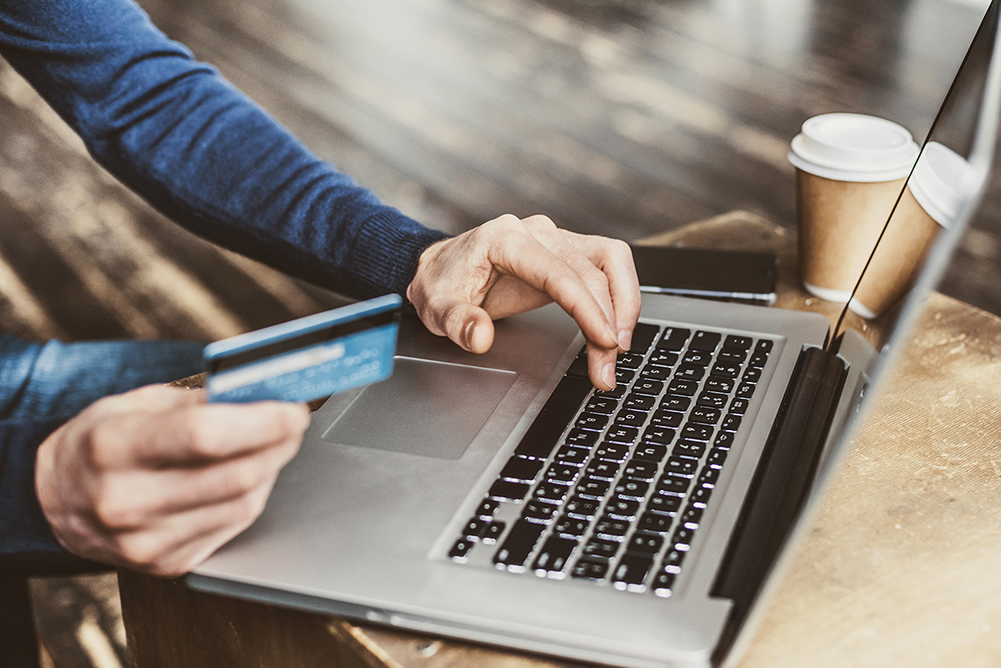
The rise of online and mobile banking has made managing finances easy and convenient. This includes paying bills, depositing checks, and transferring money, so naturally it has become increasingly popular over the years. According to research from Finder in 2019, one in five adults in Singapore currently has an account with a branchless bank.
However, there's a big concern to keep in mind when banking online: security. Having your personal financial information and bank account hacked can give rise to unnecessary headaches. Money could be drained from your account via fraudulent wire transfers, or an identity thief could use the stolen information to exploit your credit cards. In fact, this growing security concern is reflected in the fact that 34% of Singaporean customers do not trust digital banks with personal data security.
Making your online identity and activities more secure doesn't take too much effort at all. The following five tips will help keep you more secure online.
Tip #1: Choose strong and unique passwords for every login
When it comes to online security, Singaporeans seem to be prefer sticking to the same passwords. In fact, between 50-70% of Singaporeans don't change their passwords, and if they do, they only do so when prompted by their online accounts.
Sticking to the same passwords makes it easy for hackers to gain access to your online accounts by getting a batch of username and password combinations and attempting those combinations until they find the right one. The best way to protect your data and prevent a breach from having a cascading effect on your life is to choose and set a unique password for each specific online account that you have.
While it can be a tough task to remember multiple passwords, it's essential to do this to protect your online accounts. You can also delegate the job of remembering passwords to a password manager. A password manager such as the one included in ESET Smart Security Premium, helps you store your passwords into a digital vault and keeps them safe from prying eyes. The only password you need to remember is a master password that unlocks the password manager itself.
Tip #2: Steer clear of public Wi-Fi
The same things that make publicly available Wi-Fi so desirable are what make them so dangerous. These networks require no authentication to get a connection and make for an amazing opportunity for cybercriminals to access unsecured devices on the network.
Hackers may infiltrate poorly secured public Wi-Fi networks to distribute malware, monitor victims' traffic and redirect them to fraudulent login pages. Sometimes attackers will set up a malicious network (an "evil twin" or "spoof") to trick users into logging into a network with a similar or same name. From there, they can launch attacks to steal personal information, corrupt data and more.
In such cases, the best way to protect your online banking information is to either avoid public Wi-Fi altogether, or use a virtual private network (VPN) to create a secure and private network.

Tip #3: Use secure payment gateways
Whipping out a credit card to complete an online transaction has become second nature in today's digital age. With your love for online shopping unlikely to go away anytime soon, it is important to practice safe payment habits, including the use of a secure payment gateway, to prevent malicious actors from reaching your financial data and money.
Payment gateways such as PayPal use data encryption and anti-fraud technology to keep customers' details safe. These protocols also prevent the merchant from obtaining your card details. Look out for these payment options the next time you make an online purchase.
Tip #4: Don't fall prey to clickbait
Clickbait often comes in the form of a combination of misleading and sensationalised text along with a false thumbnail to encourage visitors to click on a link. These often contain links to phishing websites that aim to steal your credentials. Also, clickbait may redirect you to malicious domains which can infect your computer with malware. This malware can potentially be used to encrypt your financial information and keep it hostage, denying you access to it.
Now that you know what clickbait is, avoid clicking on them or suspicious website links. In general, don't ever click links in emails or websites unless they're from a source known to you.
While clickbait is an infamous carrier of malware, you can stay safe by employing an anti-malware solution such as ESET NOD32 Antivirus. Software like these promote system security by scanning the system for malicious behaviour and restricting redirects to malicious websites through inspection of the malware code.
Tip #5: Turn off the 'save password' feature in browsers
Your browser knows a lot about you, courtesy of your history and cached files. Many browsers offer some kind of password storage solution as well.
However, it's safer to not store passwords in your browser. If a hacker takes control of your computer remotely, they will easily be able to gain access to your online accounts. Storing passwords in a browser also makes your accounts vulnerable to people who might want to snoop around on your computer when you aren't around.
To enhance your online security, disable the autofill and the 'save password' settings. Also, use a reputable VPN so that your internet browsing activities are carried out anonymously.